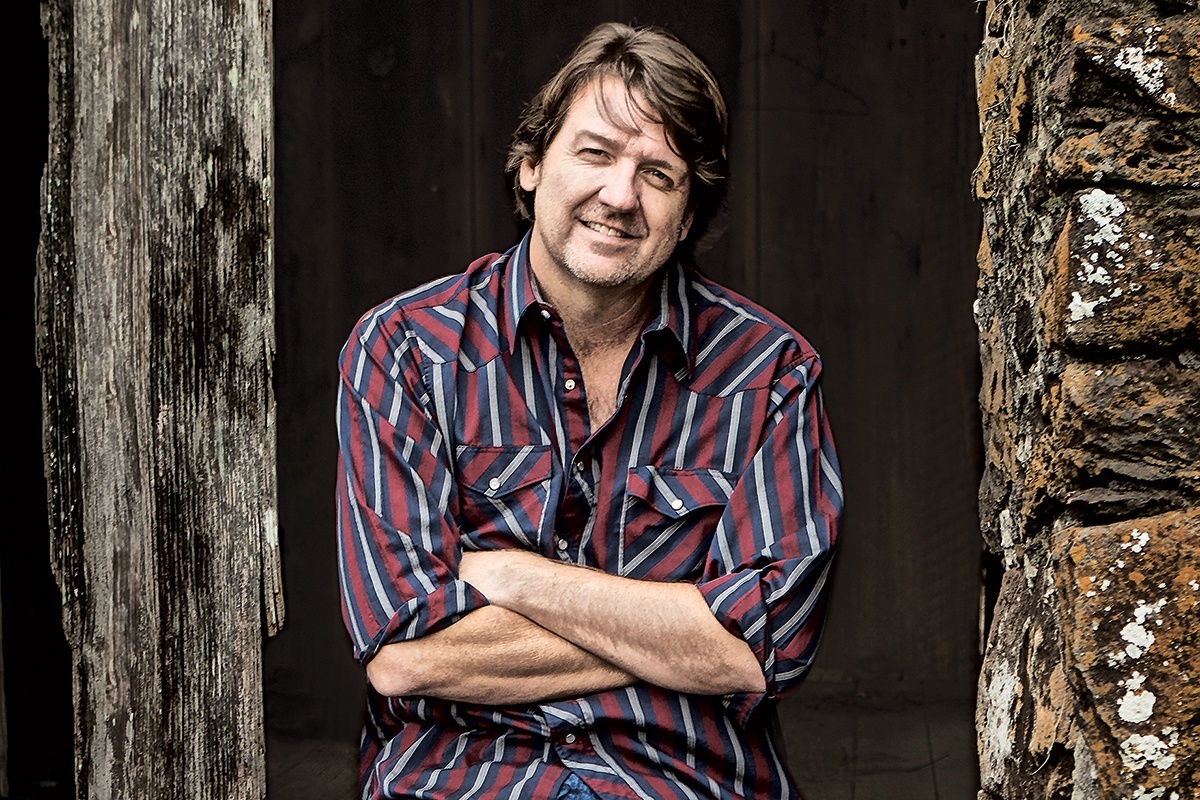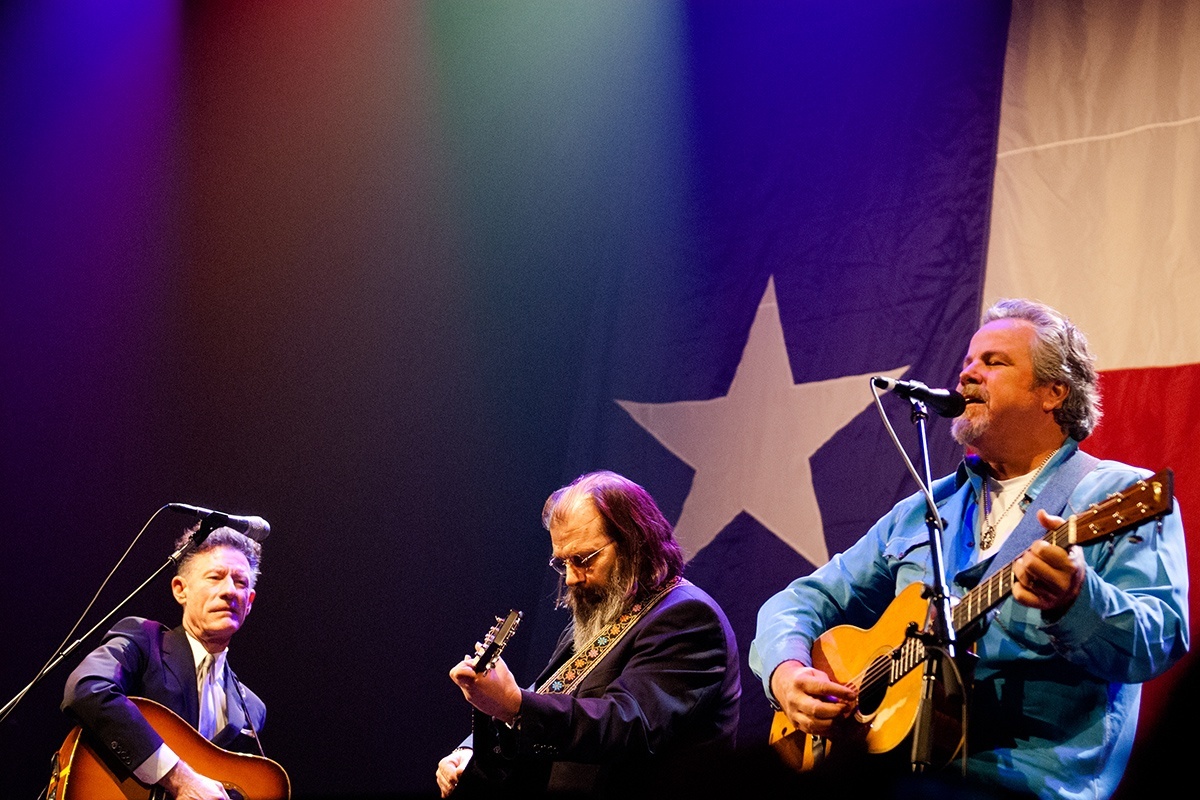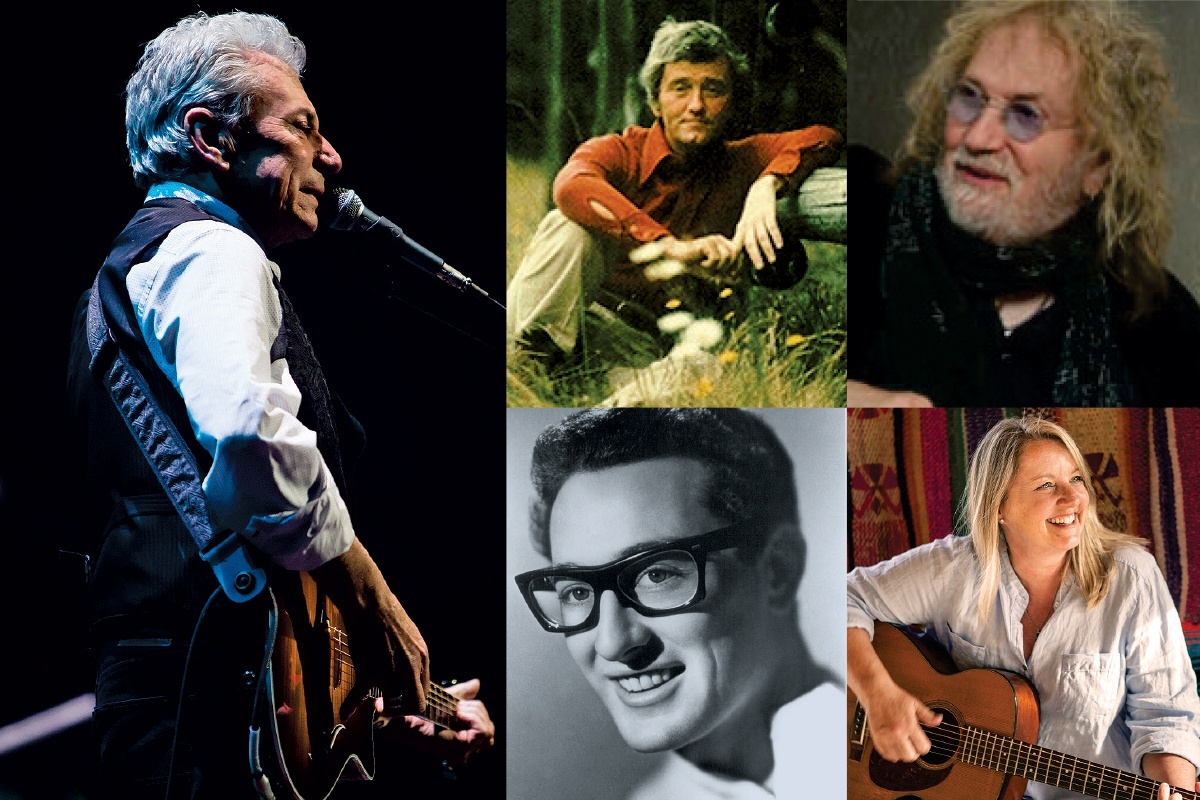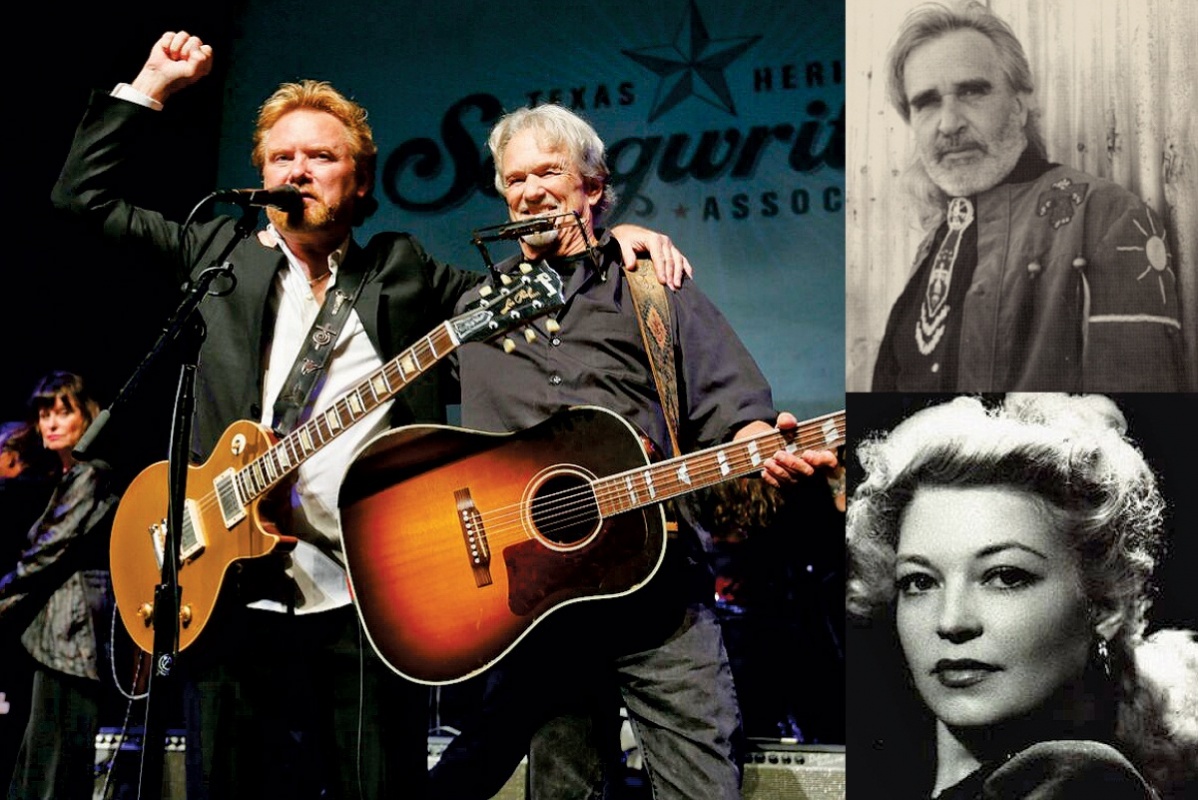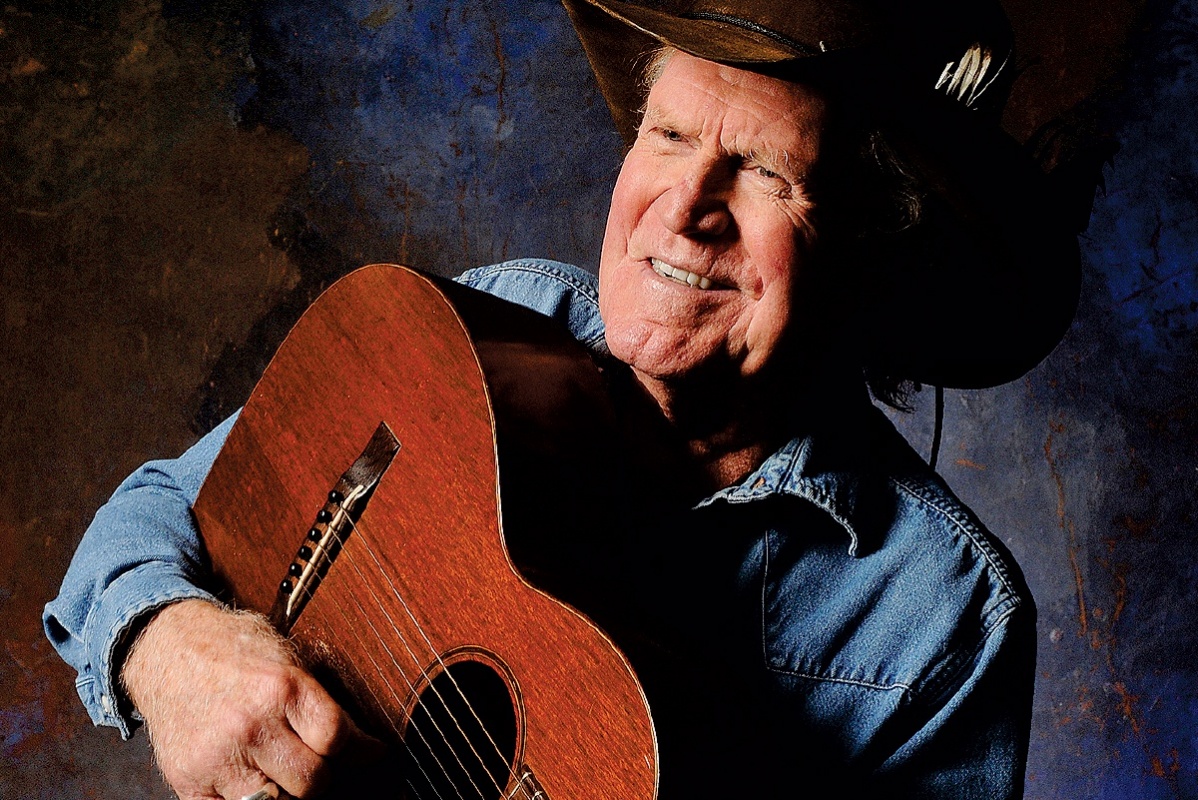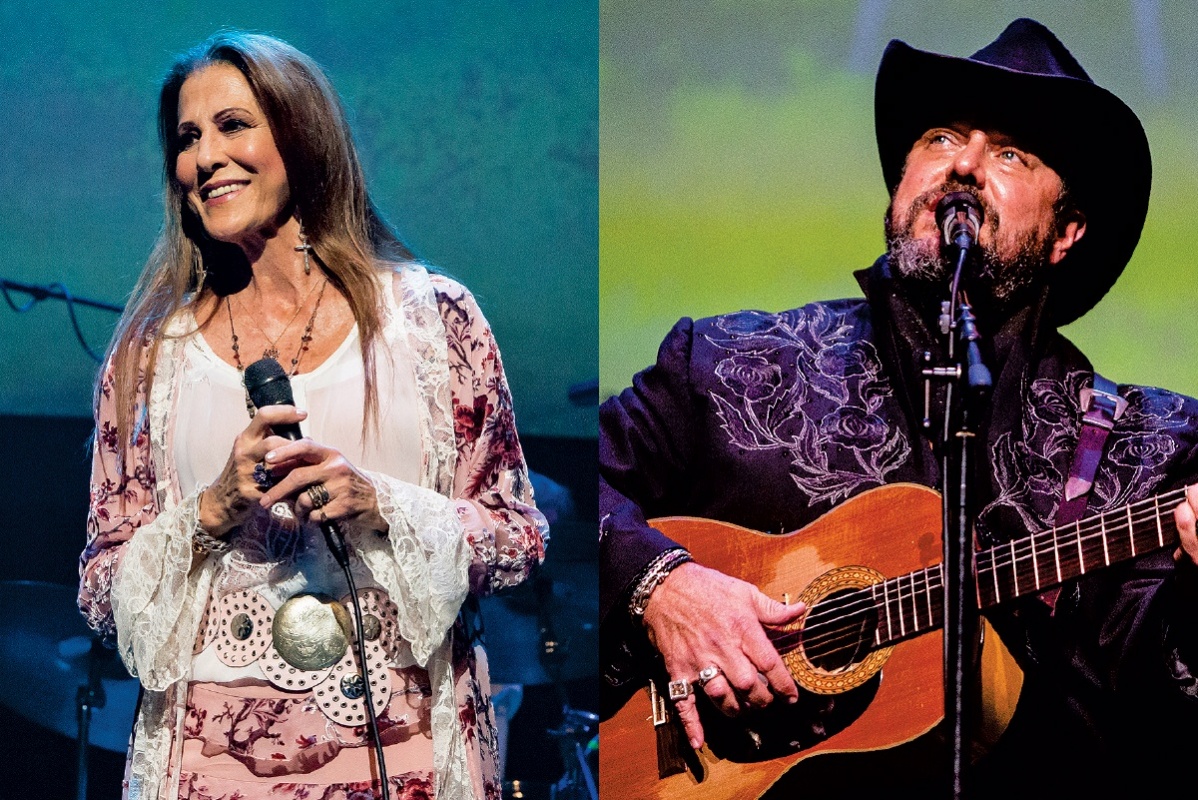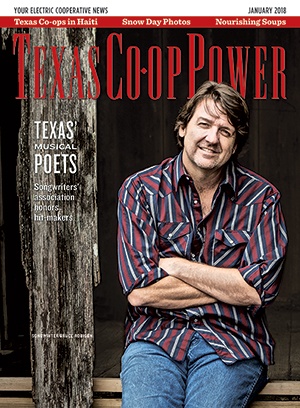Most people think George Strait wrote all those songs,” says Joe Ables, board member for the Texas Heritage Songwriters’ Association, headquartered in Austin. That’s no knock on the pride of Pearsall, where Strait grew up (he was born in Poteet). It takes a special talent to pick good songs and to sing them so artfully that you make them seem indelibly your own. But it underscores the reason Terry Boothe founded the association in 2005.
“Songwriters are the poets of our culture,” Boothe says. “But in many cases, they’re also its unsung heroes.” One of the most Texarific individuals who ever trod Lone Star soil, Boothe became an aficionado of the songsmith arts in the 1950s while attending then-rural Del Valle High School south of Austin. He discovered Willie Nelson as a songwriter long before the Red-Headed Stranger was a household name. Hoyt Axton became another early hero. “Hoyt’s mother was even a songwriter,” Boothe adds. “She wrote Heartbreak Hotel for Elvis.”
Since 2006, the association has annually inducted at least two musical poets into its Texas Heritage Songwriters’ Association Hall of Fame. At its Hall of Fame Show at Austin’s Paramount Theatre on February 24, the THSA will honor Buddy Holly, Liz Rose, Mickey Newbury and Ray Wylie Hubbard, who once lived in Poetry, Texas. Commemorating the recognition, inductees each receive a small statue of Nelson. Willie got his own Willie when the Abbott native was inducted in 2009.
While Austin brags about its self-proclaimed status as the Live Music Capital of the World, and the bigger cities of Dallas, Houston and San Antonio each boast a rich musical legacy, many of the Hall of Fame songwriters hail from—and found their inspiration in—small-town and rural Texas. Several had their compositions covered by Strait, the perennial hit-maker.
“I’m from Meadow,” said Sonny Curtis in the short biographical video shown during his induction in 2013. “It’s a pretty small town with not much to do, so my uncle used to let us come down to his dry cleaners and try on other people’s clothes.” Born in a dugout in 1937, Curtis learned to play guitar at age 6 when his cotton-farmer father bought Curtis and his brothers some in-expensive instruments strung with baling wire. The family and neighbors made their own entertainment with “musical Saturday night” get-togethers.
By 1955, he was playing with Buddy Holly, reportedly becoming the first rocker to record playing a Fender Telecaster guitar. Several of Curtis’ songs—including I Fought the Law, Walk Right Back and I’m No Stranger to the Rain—received so many radio plays that BMI inducted him into its Million-Airs Club. Another Curtis composition, Love Is All Around, the theme song for The Mary Tyler Moore Show, proved that a Texas country boy could interpret the 1970s feminist movement.
Another Sonny, Sonny Throckmorton from Wichita Falls, inducted in 2006, penned the 1984 Strait classic, The Cowboy Rides Away.
The 11 songs Strait recorded by Whitney native Sanger D. “Whitey” Shafer include the plaintive Does Fort Worth Ever Cross Your Mind? and the infectious novelty singalong, All My Exes Live in Texas. Born into a gospel-singing family in 1934, Shafer began performing as a child. In 1950, when he first heard Corsicana native Lefty Frizzell singing If You’ve Got the Money (I’ve Got the Time) on a jukebox, it changed his life.
“It cost me quite a few nickels,” Shafer recalled, “but I learned that song right away.” In 1972, Frizzell became Shafer’s collaborator-mentor when Shafer knocked on the door of Frizzell’s Nashville home. For one of their best-known co-writes, That’s the Way Love Goes, Shafer sang the first three lines, then Lefty declared, “Well, that’s the way love goes.” The Texans had the classic eight-line verse in minutes.
When Frizzell died at 47 in 1975, Whitey wrote the aching Lefty’s Gone, and it, too, later received the tasteful Strait treatment.
Some THSA honorees have been even more proactive in efforts to get their songs heard and recorded by major stars. Brownsville native Kris Kristofferson, inducted in 2007, landed a National Guard helicopter in Johnny Cash’s front yard in 1969 to get a song-demo cassette into the Man in Black’s hands. When Waylon Jennings appeared to renege on a 1972 promise to record an album of songs by Corsicana-born Billy Joe Shaver (inducted 2008), Shaver tracked him down at a Nashville recording studio and threatened to “whip his ass” if Jennings didn’t honor his word. The resulting landmark album, Honky Tonk Heroes, included only one song not written by Shaver.
When Mart native Cindy Walker’s cotton-broker father took the family to Hollywood on a business trip in 1941, the 23-year-old songwriter made him stop when she spotted the Crosby Building so that she could run inside and look for the heartthrob crooner Bing Crosby. She found his brother and publicist Larry Crosby and sang her song Lone Star Trail for him. Larry took her to meet Bing at Paramount the next morning.
Bing recorded the song, and Walker (inducted 2011) was on her way. The family relocated to Hollywood, and her songs were waxed by everyone from Grandpa Jones to Bette Midler. Bob Wills recorded more than 50 Walker tunes, including Cherokee Maiden, Bubbles in My Beer and her very first song, Dusty Skies, written as a teenager after reading about the Dust Bowl in her grandmother’s scrapbook. Ernest Tubb recorded some two dozen, including Warm Red Wine and Two Glasses, Joe.
Walker returned with her now-widowed mother to Texas in 1954, settling in Mexia and spending part of each year demoing new songs in Nashville. In 1955, she wrote one of her most resonant tunes, the melancholic You Don’t Know Me, a song recorded by Eddy Arnold, Elvis Presley, Patti Page, Van Morrison and Ray Charles. Nelson included it on an all-Walker CD he released shortly before her death in 2006. A pink granite guitar marks her grave in the Mexia City Cemetery.
Asked about her writing process, Walker once said, “I always write from the title. The title tells the story, and the words and music just come to-gether. The songs just sing themselves to me. They kind of write themselves.”
Amarillo-born and Lubbock-bred Joe Ely, inducted in 2016, expresses similar views. “When you start a song and start to like it,” he expounds, “the easiest thing to do is overwork it. Just get out of the way and let it make its own course.” And though Ely has been based in Central Texas since the 1970s, the Panhandle still fuels his muse. “I find myself going up there every time I start a new record. There’s just something magical about it to me. I guess it comes down to the emptiness of everything and the desire to fill it up. It’s flat. There’s sky forever. And the only way you can fill it up is with a good song.”
Bandera native Bruce Robison, inducted in 2007, filled the Hill Country with music while growing up in the “Cowboy Capital of the World.” Relocated to Austin, his songs found their way onto records by Lee Ann Womack, Faith Hill and Tim McGraw—and, yes, Strait. While wooing his future wife, songwriter Kelly Willis, he took her to see his Medina River roots. “Part of the way he won me over was taking me to Bandera,” says Kelly. “I fell in love with that—his personality being from that place.”
Robison has reclaimed that small-town vibe, opening a recording studio, Bruce’s Country Bunkhouse, in Lockhart. “The music that comes out of Texas is amazing,” he says. “It seems like we’re on a frontier, and I’m really excited to be a part of figuring out where it’s headed.”
“I have no idea why Texas has so much music,” adds Lubbock native Delbert McClinton, inducted in 2011. “I used to have this book by John and Alan Lomax, called Folk Songs of North America. I just loved that book. In the front there was a map of the United States, and it shows where the different musical influences entered the country and then spread. The largest part of them came together all across Texas. The map was color-coded, and Texas had the most colors coming together.”
Gene Fowler is a fan of these artists, and he also likes the songs George Strait has been writing in recent years with his son Bubba Strait and Dean Dillon.
Correction: January 5, 2018
This story misstated the location and date of the Texas Heritage Songwriters’ Association Hall of Fame Show. The show is at Austin’s Paramount Theatre on February 24, 2018.
